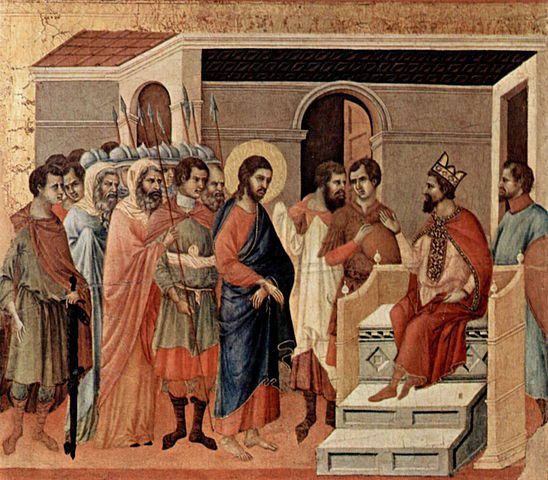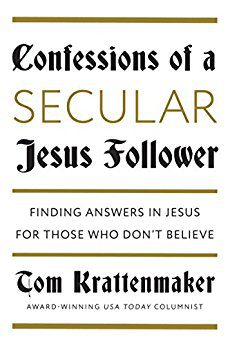
Jesus at Herod’s Court, Creative Commons
This is the first in a series of interviews with Tom Krattenmaker on his latest book, Confessions of a Secular Jesus Follower: Finding Answers in Jesus for Those Who Don’t Believe (Convergent, 2016). Tom is an award-winning USA TODAY columnist, and is the Communications Director at Yale Divinity School.
I have known Tom for many years as a precious friend and vitally enriching dialogue partner. Our conversations date back to our days of living and working in Portland, Oregon. His move to the east coast hit me hard. You don’t have to agree with Tom to find him one of the most agreeable people you will ever meet. His human dignity, honesty and civility are precious commodities in short supply and great demand in our society. The following is the list of questions I asked Tom. You will find the audio for the conversation here.
Tom, you confess to follow Jesus as a secular person. Many people of various ideological stripes will find this claim counter-intuitive, possibly self-contradictory. In your estimation, why might that be?
Could you please define each of these terms in as succinct a fashion as possible? “Secular”, “Jesus”, and “Follower”.
You are not an either-or guy, which means you don’t believe one has to adhere to Chalcedonian creedal Christianity to follow Jesus, or to reject other paths to follow him. However, you do NOT think all paths are equally meaningful or beneficial, such as consumer capitalism (See pages 2-3). Could you please unpack this point from your introduction?
While you don’t think atheism leads us down a path of anarchy or debauchery, you do think our secularist age has flattened out meaning. While doom is not on the horizon, gloom and boredom are daily struggles (See page 6). Would you please develop this thought?
As with secular humanism generally, you believe society is “proving” people can be “good without a god” (See page 5). You also wish to go all the way back to Jesus’ example and teaching “stripped of theology, doctrine, and present-day political appropriations to the extent that is possible” (page 15). The words “proving” and “to the extent that is possible” linger in my mind and lead me to ask a question that nags at me: “Are you not drawing from borrowed capital?” While I think there are many good atheists, many of whom put a vast assortment of theists to shame, I also reason they do not have sufficient grounds for their practices, or to safeguard meaning. So, I am not sure what you mean by “proving”. Moreover, to what extent is it possible to separate Jesus’ actions and teachings from his beliefs about his Father, the kingdom of God, and himself? While fascinating and vitally important as an exercise in seeking to illustrate or demonstrate the significance of Jesus in our secular age, I can’t help but think you are trying to have your cake and eat it, too. How would you respond?

I look forward to asking Tom more questions on his thought-provoking, fresh and timely work in future interviews… If only I could interview Tom and St. Augustine, author of another form of “confessions”, together. They sure make for great book ends to this theologian’s musings.












